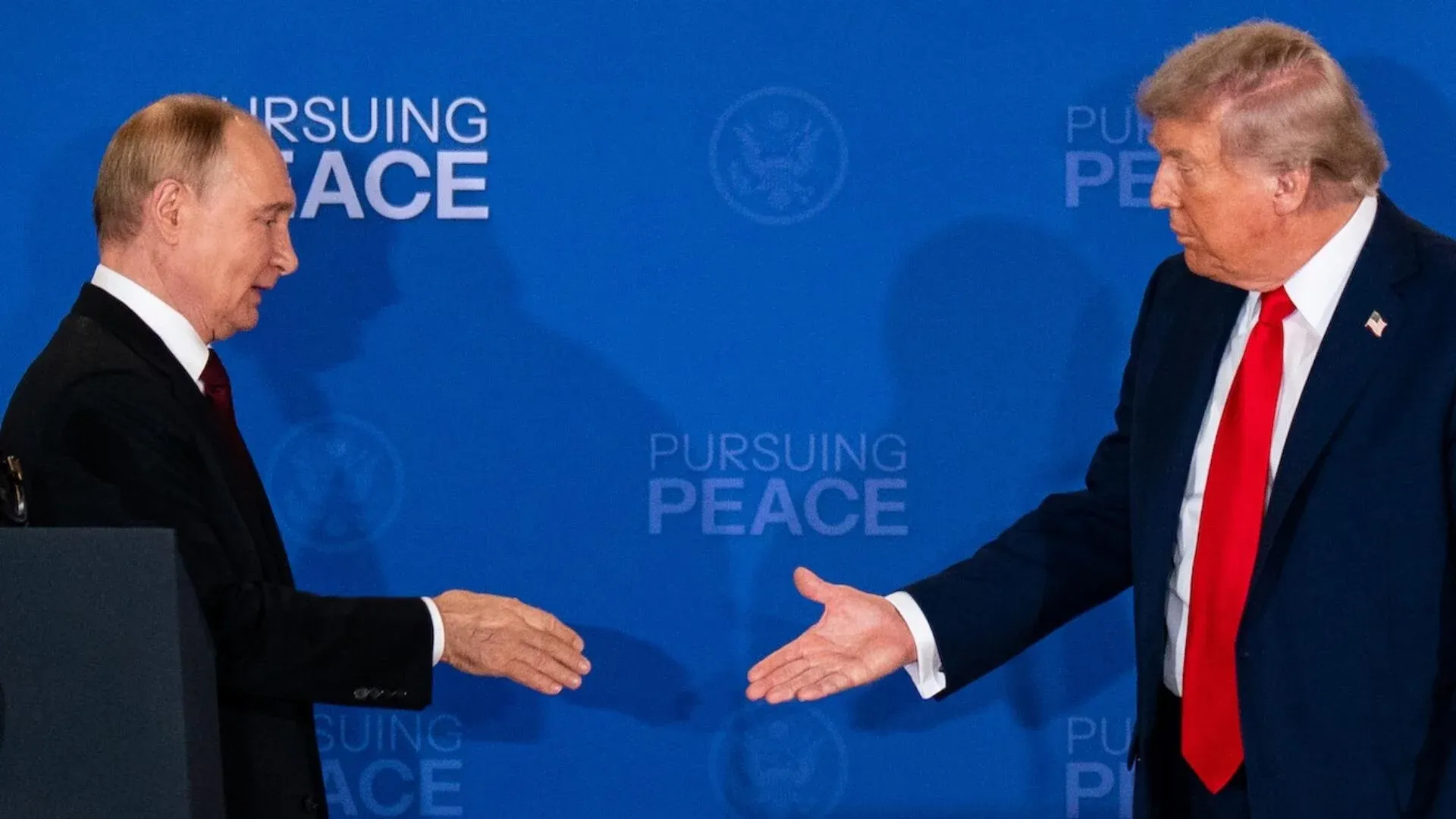In the cold winds of Alaska, at a U.S. military base in Anchorage, Donald Trump rolled out a red carpet for Vladimir Putin — a gesture that resembled more a Hollywood premiere than diplomacy in times of war. It was the first meeting of the two leaders in four years, lasting three hours, but it yielded no concrete promises regarding a ceasefire in Ukraine. Instead, Putin returned to the world stage to applause from the White House host, while Trump remained with vague statements about an "agreement" that seems to exist only in his imagination.
This meeting bore all the signs of a typical Trump show. Insiders from the White House whispered that the idea for the summit originated from a chaotic call from Trump to the Kremlin, inspired by his conviction that "only he" can resolve the Ukrainian crisis. But reality proved harsher: no breakthroughs, only promises of new meetings, which sound like delays in an inevitable failure.
Putin arrived in Anchorage in a good mood, stepping on American soil for the first time since 2015. He, who is suspected by the International Criminal Court of war crimes, was greeted with an honor escort of fighter jets and applause from Trump — footage later cut from the White House press office's official video, likely to avoid scandal among Democrats. "It was a gesture of hospitality, but it borders on capitulation," said a senior State Department official who worked during Obama's and Trump's administrations. Just a week ago, Trump was railing about new sanctions and ultimatums, reducing the deadline from 50 days to ten. But during his presidency, the U.S. imposed no new sanctions against Russia — neither on the anniversary of the invasion, nor after the G7 summit, nor against Britain or the EU.
Democrats in Congress did not hold back sarcasm: "Trump responded to Russian rockets in Kyiv with a tweet, and now — with applause," said Senate Minority Leader Chuck Schumer. After the negotiations, Trump announced that sanctions are not planned for now, although onboard Air Force One he promised "dissatisfaction" without a truce. "An agreement exists only when it is reached," he told journalists, which can be read as an admission of defeat. "We haven't gotten there yet."
In an exclusive Fox News interview, Trump clarified a bit: Putin "wants to resolve the problem," Russia and Ukraine are "close to an agreement." But the details? None. Instead, Trump shifted responsibility onto Volodymyr Zelensky: "Now the matter is up to President Zelensky." He even proposed organizing a meeting between Putin and Zelensky next week, although it is unclear who will initiate it — Moscow or Kyiv. "Russia — very powerful, and they — no," Trump added, advising Zelensky to agree. These words, according to insiders, reflect Trump’s realism: strength above all, even if it means ignoring allies.
Experts see minimal success in the meeting: Trump did not allow Putin to impose "territory exchanges" or expand the agenda beyond Ukraine. Edward Rong, a former senior NATO intelligence officer, told me: "Russia presented this as a global dialogue, but Trump kept focus on Ukraine. The good news — no bad deal for Kyiv was signed. But that’s where the good news ends." Daniel Fried, a State Department veteran with 40 years of experience, was more categorical: "Putin made no concessions. Trump tries to portray everything in rosy light, but what has he achieved? The summit appears to be a mistake, based on false reports by Steve Vickoff about 'readiness' of the Kremlin."
Putin opened the press conference with a lengthy speech praising Trump: "If Trump were president, there wouldn't be a war." Trump responded amicably, calling him "Vladimir." But both ignored journalists' questions and walked away. "This is not diplomacy, but theater," said political scientist Yevhen Roshchyn. James O'Brien, a former assistant secretary of state, added: "Trump needs attention, and he got it. But it opens the door for Putin to set the terms."
Ukrainians, as former ambassador Valeriy Chaly told me, were shocked by the warm reception: "Red carpet for a murderer — disgusting." But Rong reassures: "This is Trump’s style — friendly with Kim or the Saudi prince." The negotiations were shortened: without an extended format or a lunch, as with Zelensky after the scandal.
Putin tried to expand the discussion to "root causes" — code for demands regarding NATO and spheres of influence. "This is Kremlin stubbornness," says Roshchyn. Trump mentioned a "very significant moment," but made no promises. "Recognition is important for Putin, but it doesn't translate into currency," summarized Fried.
Ultimately, this meeting was a red carpet with no results. Trump did not unite against Putin for Ukraine, but Europe and Kyiv must hold on: press for sanctions, because otherwise Trump will continue his solo dance on the global stage. As history shows, such shows rarely end in peace — they only delay the crisis.


